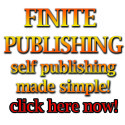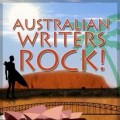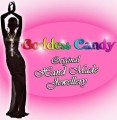
Original Content
Thinking of publishing eBooks on Amazon’s Kindle?
I have published numerous books on Kindle and there is one very important piece of advice I feel compelled to share with you – ORIGINAL content.
I’m going to say it again in case you didn’t get it first time, because it goes against what you may have already been taught, assumed or read, ORIGINAL CONTENT must be used.
There are a lot of courses online at present from various people teaching how to make wads of cash from Kindle eBooks. I have sat in on some of these webinars and done some courses, received mail outs, and some of them clearly state it’s okay to use PLR and/or rehashed content. I can’t emphasize it enough; what you publish must be original.
There are two major points in Amazon KDP’s (Kindle Desktop Publishing) terms and conditions, break either or both of them and you could have your account cancelled, that’s right, cancelled without notice til proven innocent, or even banned for life by depending on the severity of the ‘indiscretion’. Ye gads! Amazon are reknown for being hard task masters, which is good for authors-as it’s nigh on impossible for someone to duplicate any content at all. It might take Amazon a couple of months to find it, or someone might spot it and report it.
How would you feel if you paid for a book and found out later the same information or story is available for free elsewhere?
Number One:
Do not use PLR content.
By that I mean ANY Private Label Rights material you may have purchased the rights to re-use. You may think it’s an easy gig to buy some stuff, re-write it yourself, buy some software that will re-write it for you, get an outsourcer to re-write it, or even make it better than the original; think again – don’t. At best, use any PLR material for research and information purposes when writing your book.
Amazon have very sophisticated means of catching you out doing this. Start from scratch, write something original. Sleep better at night.
Number Two:
Do not use any content that is freely available on the web.
That includes anything, from expired copyright books to posts from blogs, even if it is your own material, and anything else in-between. If you must quote from a free source, make sure you annotate it as such and put it in your bibliography at the back of your book.
I would personally keep this to a minimum where possible without impinging too much on the message or story you are trying to get accross.
*(There may be some exceptions to this rule, such as public domain or other types of licensed material, this warrants further investigation by the publisher, or the author if self published).
One: No PLR or regurgitated content.
Two: No freely available web content.
Resources: Check out Amazon KDP– Kindle Desktop Publishing
Read Amazon’s Terms and Conditions about content here.
More Kindle publishing tips here.







